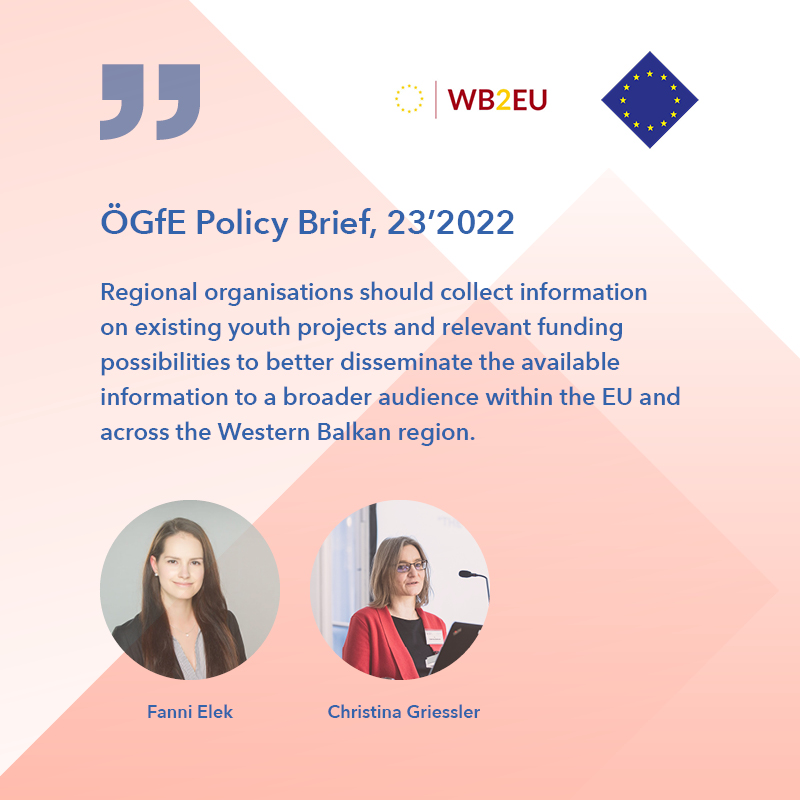Youth Cooperation in the Serbian-Hungarian Context, Fanni Elek & Christina Griessler, ÖGfE Policy Brief, 23’2022
The policies of the European Union (EU) regarding the enlargement process focus not only on the political elite but also try to create bottom-up processes of adapting to the EU’s values and behaviours (e.g. EU-isation) by involving and supporting the population in cross-border or regional cooperation projects. Especially, the younger generation in the accession countries receives more attention from the EU, as they are considered to be better able to overcome old animosities and are more open to new ideas and perspectives.
Policy Recommendations
- Regional organisations should collect information on existing youth projects (e.g. the Regional Youth Cooperation Office and the Youth Initiative for Human Rights) and relevant funding possibilities to better disseminate the available information to a broader audience within the EU and across the Western Balkan region. These organisations should also act as contact points for interested audiences.
- Fostering reconciliation, dismantling old animosities, and establishing trust by providing exchange possibilities, needs to be further promoted. The ERASMUS Programme should fully include all Western Balkan countries, hence changing the status to programme countries for all.
- The focus of the Interreg-IPA Cross-border Cooperation Programme Hungary-Serbia should move to areas that are of main importance for fulfilling the technical requirements for the EU accession process, such as the rule of law, and providing information on the main logic of democratic processes.

The Policy Brief is published in the framework of the WB2EU project. The project aims at the establishment of a network of renowned think-tanks, do-tanks, universities, higher education institutes and policy centres from the Western Balkans, neighbouring countries and EU member states that will be most decisive for the enlargement process and Europeanisation of the region in the upcoming years. The WB2EU project is co-funded by the European Commission under its Erasmus+ Jean Monnet programme. The European Commission support for the production of this
publication does not constitute an endorsement of the contents which reflects
the views only of the authors, and the Commission cannot be held responsible
for any use which may be made of the information contained therein.
Photo by Rawpixel


